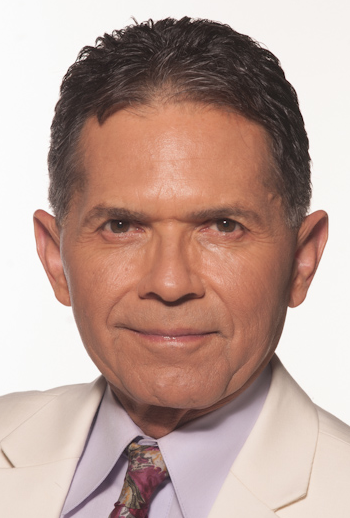By David Magallanes / Guest contributor

David Magallanes
In chapter 3, verse 5 of Genesis, we read in the story of Adam and Eve that they were warned—by God, no less—to abstain from eating the fruit of the tree of knowledge lest “their eyes be opened” and they become “as gods” (or “like God” or “like divine beings,” depending on the type and version of Bible being read), “knowing good and evil.”
So what do Adam and Eve do? Well, of course, they eat the fruit of the tree of knowledge. The temptation was too much. Their hunger for knowledge was innate, so asking them not to eat from the tree of knowledge was a non-starter. After all, these are human beings we’re talking about in this profoundly symbolic story, adults who seek knowledge as naturally as a child wanting to explore his world. Adam and Eve risked “knowing evil” in order to gain knowledge, which apparently they considered their birthright.
Albert Einstein knew how humankind’s ambitious and eternal quest for knowledge risks evil—in fact, it risks one of the greatest evils that could ever be visited upon us: the destruction of the earth and the human race. Although Mr. Einstein’s contribution to the knowledge that made nuclear weapons possible is undisputed, he mistakenly and naïvely assumed that the United States would “respect” this awful power and not use it. He subsequently anguished when we dropped the atomic bombs on Hiroshima and Nagasaki.
Einstein then realized, to his horror, that he had inadvertently opened one of the closest approximations in all of human history to the mythological Pandora’s box (originally a jar), in which all the evils of the world were held, constrained. According to the myth, when the box was opened, the evils scattered about the earth, leaving only hope inside the box.
*Information for this article was obtained from a Peace Pledge Union article.
David Magallanes is a writer, speaker and professor of mathematics. You may visit his web site, dedicated to honoring daughters and keeping them healthy, at www.roses4daughters.com. You may contact him through e-mail at dmagallanes@roses4daughters.com.
***
La Caja de Pandora de Einstein
Por David Magallanes / Columnista invitado
En capítulo 3, versículo 5 de Génesis, leemos en el relato de Adán y Eva que fueron advertidos—por no menos que el mismo Dios—a abstenerse de comer la fruta del árbol del conocimiento para que no se les fueran a abrir los ojos, ni que fuesen como los dioses, conociendo el bien y el mal.
¿Y qué es lo que hacen Adán y Eva? Bueno, por supuesto, comen la fruta del árbol del conocimiento. La tentación fue demasiado grande. El hambre por el conocimiento fue innato, así que pidiéndoles que no comieran del árbol del conocimiento no funcionó. Al cabo que estamos hablando de seres humanos en este cuento profundamente simbólico, adultos quienes buscan el conocimiento tan naturalmente como un niño que quiere explorar su mundo. Adán y Eva se arriesgaron a “conocer el mal” para así ganar el conocimiento, lo cual aparentemente consideraron su patrimonio.
Albert Einstein sabía cómo las ambiciones de la humanidad y su eterna búsqueda del conocimiento arriesgan el mal—de hecho, arriesgan uno de los males más grandes que pudiera caernos encima: la destrucción de la tierra y de la raza humana. Aunque la contribución del Sr. Einstein al conocimiento que hizo posibles las armas nucleares sea indisputable, equivocadamente él pensó que Estados Unidos “respetaría” este mal espantoso y que no lo utilizaría. En seguida, se atormentó cuando soltamos las bombas atómicas sobre Hiroshima y Nagasaki, Japón.
Einstein, entonces, se dio cuenta, horrorizado, que él había abierto una de las aproximaciones más cercanas en toda la historia humana a la mitológica caja de Pandora (originalmente un jarrón), en la cual todos los males del mundo se contenían, refrenados. Según este mito, cuando se abrió la caja, los males se esparcieron por todo el mundo, dejando atrás no más que la esperanza.
*Información para este artículo fue obtenida de un artículo del Peace Pledge Union.
— David Magallanes es un escritor, orador y profesor de matemáticas. Usted puede visitar su sitio cibernético, dedicado a la honra y la salud de nuestras hijas, en www.roses4daughters.com. Se puede comunicar con él por e-mail a: dmagallanes@roses4daughters.com.
